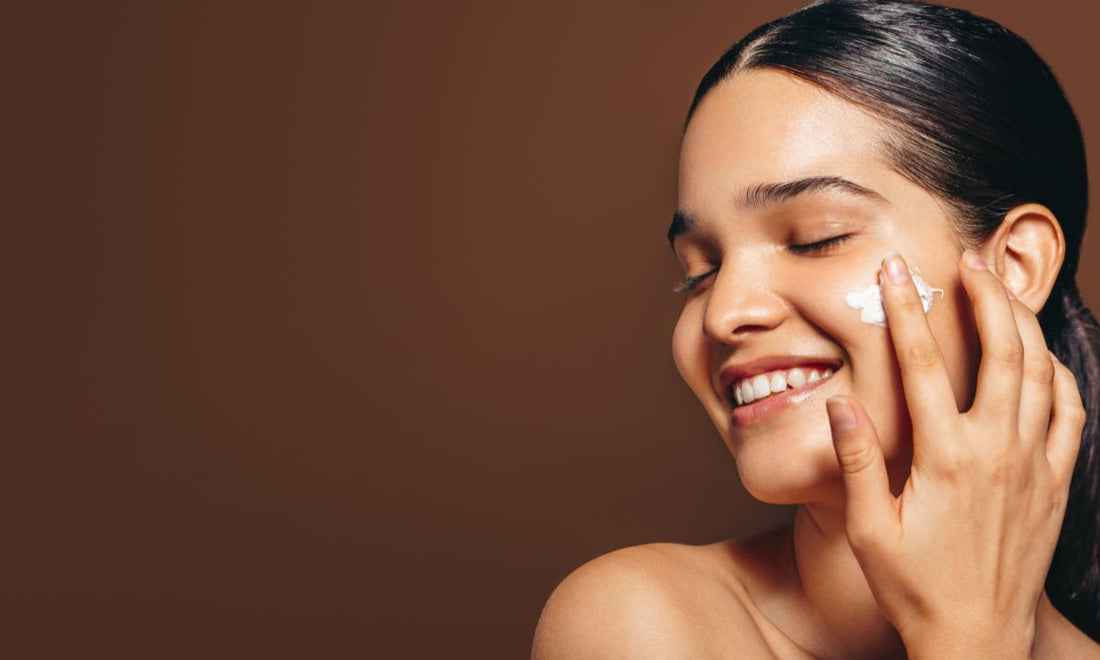
Does Moisturizer Darken Skin? Find Out the Truth Behind the Myth
Introduction
Moisturizers are often seen as the holy grail of skincare. They promise to hydrate, nourish, and protect our skin. But for many people, a lingering question remains: does moisturizer darken skin? Skincare myths spread quickly, and one of the most common concerns is whether moisturizer makes skin dark over time. Some users even report that their skin becomes dark after applying moisturizer, leading to confusion and worry.
In this blog, we’ll break down the science behind moisturizers, explore possible reasons why skin looks dark after applying moisturizer, and uncover the truth about whether this product is a friend or foe to your complexion.
Does Moisturizer Make Skin Dark? Understanding the Science
Before we dive into myths, let’s understand what a moisturizer actually does. A moisturizer’s job is simple: it locks in hydration, prevents water loss, and maintains the skin’s barrier. So, will moisturizer make skin dark scientifically? The short answer is no—a well-formulated moisturizer does not contain ingredients that can naturally darken your skin.
However, some people feel that moisturizer makes skin dark. This perception may arise because:
• Moisturizers can sometimes leave a greasy finish that makes skin look dull or tanned.
• Certain formulations contain oils or butters that make the face appear shiny, which can be mistaken for darkness.
• Improper use—such as applying a thick layer during the day without SPF—may make skin appear uneven.
If you’ve ever wondered, “why my skin looks dark after applying moisturizer,” chances are it’s due to one of these temporary effects rather than actual pigmentation changes.
What Causes Skin to Become Dark After Applying Moisturizer?
The idea that skin becomes dark after applying moisturizer isn’t completely baseless—it often has more to do with indirect effects than the moisturizer itself. Here are the most common causes:
1. Lack of Sun Protection
If your moisturizer doesn’t have SPF and you step out in the sun, UV rays can trigger tanning or hyperpigmentation. Many users then mistakenly believe that moisturizer makes skin dark, when in reality, it’s sun damage.
2. Heavy or Oily Formulas
Thick creams with comedogenic oils may clog pores, leading to breakouts or dullness. This can make it feel like moisturizer darkens skin, but it’s actually a side effect of buildup on the skin’s surface. If you have very dry skin, choosing a non-comedogenic dry skin cream can keep your skin nourished without clogging pores.
3. Reaction to Ingredients
In rare cases, fragrance, mineral oil, or certain chemicals in moisturizers can irritate the skin. When skin is inflamed, it may heal with post-inflammatory hyperpigmentation, giving the impression that moisturizer makes skin dark.
4. Over-Exfoliation with Actives
Many moisturizers today contain actives like glycolic acid or retinol. Overuse without sunscreen can make skin sensitive and more prone to tanning, leading people to ask: does moisturizer make skin dark?
5. Uneven Skin Tone Getting Highlighted
When skin is hydrated, underlying pigmentation or tanning may become more visible. This doesn’t mean moisturizer darkens skin, but it can make existing dark areas stand out more.
The Truth About Moisturizers and Skin Darkening: Is It Really Possible?
Let’s get one thing straight—moisturizers don’t contain magical ingredients that darken your skin tone. In fact, they do the opposite: they keep your skin barrier healthy, reduce irritation, and make you glow. So why do people keep asking, “will moisturizer make skin dark”?
The truth is that moisturizer makes skin dark only in perception, not in reality. If your skin tone looks dull or tanned, it’s usually because:
• You’re not using SPF with your moisturizer.
• You’re using the wrong type of moisturizer for your skin type.
• There’s an ingredient that doesn’t suit your skin.
Dermatologists agree: skin becomes dark after applying moisturizer only if the formula triggers irritation or if the sun exposure is unmanaged. Otherwise, moisturizers are essential for keeping skin youthful and radiant.
Instead of fearing that moisturizer darkens skin, focus on choosing the right product: lightweight for oily skin, nourishing for dry skin, and always with sun protection during the day.
Also Read: 10 Best Monsoon Skin Care Routine Tips for Glowing Skin
Conclusion
So, does moisturizer darken skin? The answer is no—moisturizers alone do not cause skin darkening. What actually happens is either sun exposure, clogged pores, unsuitable formulas, or ingredient reactions. If you’ve ever thought, “why my skin looks dark after applying moisturizer,” it’s worth reassessing the type of moisturizer you’re using and whether you’re pairing it with SPF.
Moisturizers are your skin’s best friend, not its enemy. By picking the right formula and protecting your skin from UV rays, you’ll enjoy healthy, glowing skin—without any fear of darkening.
FAQs
Does moisturizer tan your skin?
No, moisturizer itself does not tan your skin. If you feel like your skin becomes dark after applying moisturizer, it’s likely due to sun exposure when using a non-SPF product.
Why does skincare make skin look darker?
Sometimes skincare makes skin look darker because hydration reveals pre-existing pigmentation or because actives like acids increase sun sensitivity if sunscreen is skipped.
Which ingredients in moisturizer make skin darker?
Generally, no moisturizer ingredient is designed to darken skin. However, mineral oil, heavy butters, or artificial fragrance can cause irritation or dullness, leading people to think moisturizer makes skin dark.
Which moisturizer does not make skin dark?
Any dermatologist-recommended, lightweight, non-comedogenic, and SPF-enriched moisturizer will not make your skin dark. Look for gel-based or water-based formulas for oily skin and hydrating creams for dry skin.
